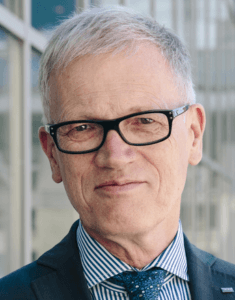Stay in the loop! Subscribe to our mailing list
by Ulrich Grothus, ACA President.

In the context of the European Research and Innovation Days 2020, I recently had the privilege to represent ACA at a roundtable on the “European Research Area Talent Pipeline”. The roundtable was moderated by Director-General Jean-Eric Paquet and attended by around 30 representatives of national and European stakeholder organisations.
For many younger researchers the “pipeline” towards permanent positions in the research system looks pretty much clogged. At the roundtable of 22 September 2020, several good points were made as to unsatisfactory employment conditions and the imbalance between (too) much competition and review, on one hand, and (too little) predictability and reliability of a career, on the other. An imbalance that may waste existing talent and make a career in research unattractive. That is particularly true for women, still underrepresented in professorial positions in most countries and being even more affected by the corona crisis then their male colleagues.
From an internationalisation perspective, four points came to my mind:
First, an early and continuous exposure to international experience and cooperation is vital for young researchers in order to share fresh ideas, have access to the best available facilities, and build productive networks. The longer the current obstacles to physical mobility last, the worse the lasting impact on younger researchers might be.
Second, over the last couple of years we have seen a strong influx of highly gifted young researchers from countries with low and/or decreasing research budgets into countries like Germany, which have been investing strongly in research and have created additional positions for doctoral students and postdocs; even though many such positions are somewhat precarious and widely criticised as such. The future of the European Research Area (ERA) will depend on preserving and developing research capacity all across Europe and on bringing research jobs to young researchers, rather than the researchers to jobs elsewhere on the continent.
Third, those wishing, or being forced, to be geographically mobile, need functioning structures to welcome them to, and smoothen the path into unfamiliar research systems and academic environments. ACA members SAIA in Slovakia and NAWA in Poland, together with three universities in Bulgaria, Serbia, and Slovakia, are just starting, along the ACA Secretariat, an EU-funded project – UniWellS – to further professionalise such support structures and services in Central-Eastern and South-Eastern Europe.
Finally, part of the refugees who have come to Europe over the last years are trained as researchers and could again embark on a research career. It would be beneficial both for them as individuals and for the European Research Area, if these existing intellectual resources were tapped into more quickly, recognising foreign qualifications and bridging the way back to professional life. To help achieve that, ACA, with its German and Finnish member organisations (DAAD and EDUFI), is currently running the CARe project (Career Advancement for Refugee Researchers in Europe), which is funded by DG Research and which has already generated a number of useful resources.
Sure, the main responsibility for creating attractive careers in research is certainly with institutions and research funding organisations. However, internationalisation agencies and ACA as their European umbrella organisations have more than “two cents” to add.